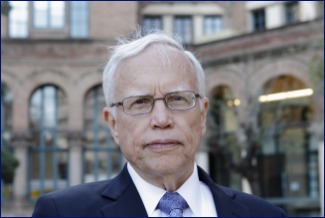James J. Heckman speaks on the profit of good early childhood education

The Workshop on Family Economics organised by research centre MOVE, a Generalitat of Catalonia and UAB consortium directed by professor Salvador Barberà, has given us the chance to interview James J Heckman, Nobel Prize in Economics in 2000. He specialises in health, education and family economics, and has developed theoretical and empirical models for capacity acquisition throughout the life cycle. On this occasion, he talks about his recent studies on the profitability of good parenting quality, especially in the first stages of development, and about the possible effects of the current economic crisis.
James J. Heckman, Nobel Prize in Economics in 2000, is specialist in health, education and family economics, and has laid the groundwork for a scientific evaluation of economic policies. He is well known for his theoretical and empirical models of human development and of acquisition of capacities throughout the life cycle. His most recent studies emphasise the economic role of a good education during the first stages of development. He has monitored the lives of children and analysed the effects of improving their environment at preschool age, especially in families with integration problems in the U.S.A.
What is the most important result of your research on the origins of inequality?
Research shows that the family plays a very important role in the origins of poverty, and inequality has a huge family component. We are starting to understand the contribution of the family in children's future capabilities and behaviours, and through which mechanisms this influence is exerted.
Are these skills and behaviours greatly influenced by genetics?
Yes. Investigations carried out in the field of behavioural genetics estimate that 50% of variability among individuals is due to genetics. But the other 50% has its origin in a variety of non-genetic factors.
In families without major economic or integration problems, what can impair a child's future?
Environment is the most important factor for the development of children, but we make a distinction between the quality of parenting and economic level. People can be rich but provide poor environments to their children. There are children in poor environments - in the sense of money - who still receive very good parenting, and vice versa. The important thing is good parenting, not the economic level: listening to the child's requests, not being too harsh or violent, stimulating the child's curiosity, meeting their needs, etc.
May the current economic crisis affect the future of children?
Yes, in several ways. The first is stress: the quality of family environment may be substantially compromised due to stress. Secondly, there may be a hostile environment associated with reduced family income that could lead to lack of time to spend with the children. That would also affect the quality of parenting.
There are studies where you demonstrate that investing in improving the environment of young children can be financially profitable. How profitable?
Yes, there are studies that I and others have conducted that calculated the economic return on such investment. The result is a return between 7% and 10%. A much higher return than what people can get in passbook savings or most of the investments in the stock market!
Universitat Autònoma de Barcelona


